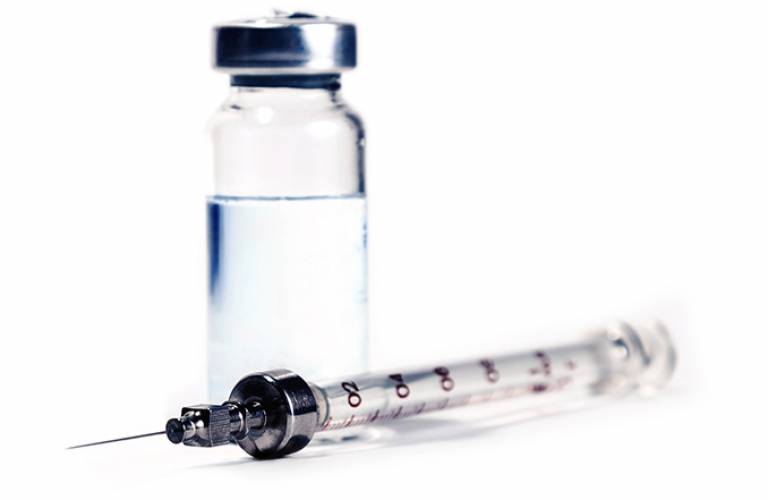Hereditary autoinflammatory disease programme: the NHS CAPS Treatment Service

16 December 2014
The UCL Centre for Amyloidosis & Acute Phase Proteins has identified the cause and treatment for the prototypical cryopryin associated periodic syndrome (CAPS), and subsequently for a range of other hereditary and acquired autoinflammatory disorders. As a result of the research, canakinumab was licensed for this condition.
In recognition, NHS Specialised Services commissioned the UK CAPS Treatment Service in 2010 to deliver life-changing IL-1 blocking therapy to the national caseload of CAPS patients at UCL.
CAPS causes recurrent attacks of fever, pain and rash from birth, with serious long-term risks to the child's growth and development. Genetic and clinical studies at UCL, funded by the NHS, showed that patients with CAPS had genetic mutations that result in overproduction of a key promoter of inflammation called interleukin-1. From these results, the researchers, in collaboration with the pharmaceutical company Novartis, developed a drug called canakinumab which blocks interleukin-1.
Canakinumab completely alleviates symptoms in virtually all CAPS patients. It clears the inflammation that causes 'flu'-like symptoms and fevers and seriously affects the skin, eyes, joints and brain. This ends the overwhelming fatigue that impedes employment and social activities. It allows normal quality of life, as well as catch-up growth and sexual maturation in adolescents. Early treatment is expected to prevent the skeletal deformities, blindness, deafness and kidney failure that can otherwise occur.
My whole body ached, I had difficulty walking and had to be carried to bed. I missed a lot of school with severe headaches, and could not even have a bath due to the rash. I cannot believe the effect of this drug, my symptoms have completely disappeared. - Patient
As a result, NHS Highly Specialised Services commissioned the CAPS Treatment Service at the Royal Free Hospital to deliver a national diagnostic and treatment service for patients with autoinflammatory diseases. In the UK centre, 64 patients with CAPS are currently receiving canakinumab at an annual cost of £4.4 million. Another 800 patients worldwide are now also benefiting from canakinumab treatment.
Researcher Professor Philip Hawkins describes this treatment as "the most dramatically effective and life-changing medicine for a chronic disease that I have ever encountered".
 Close
Close

